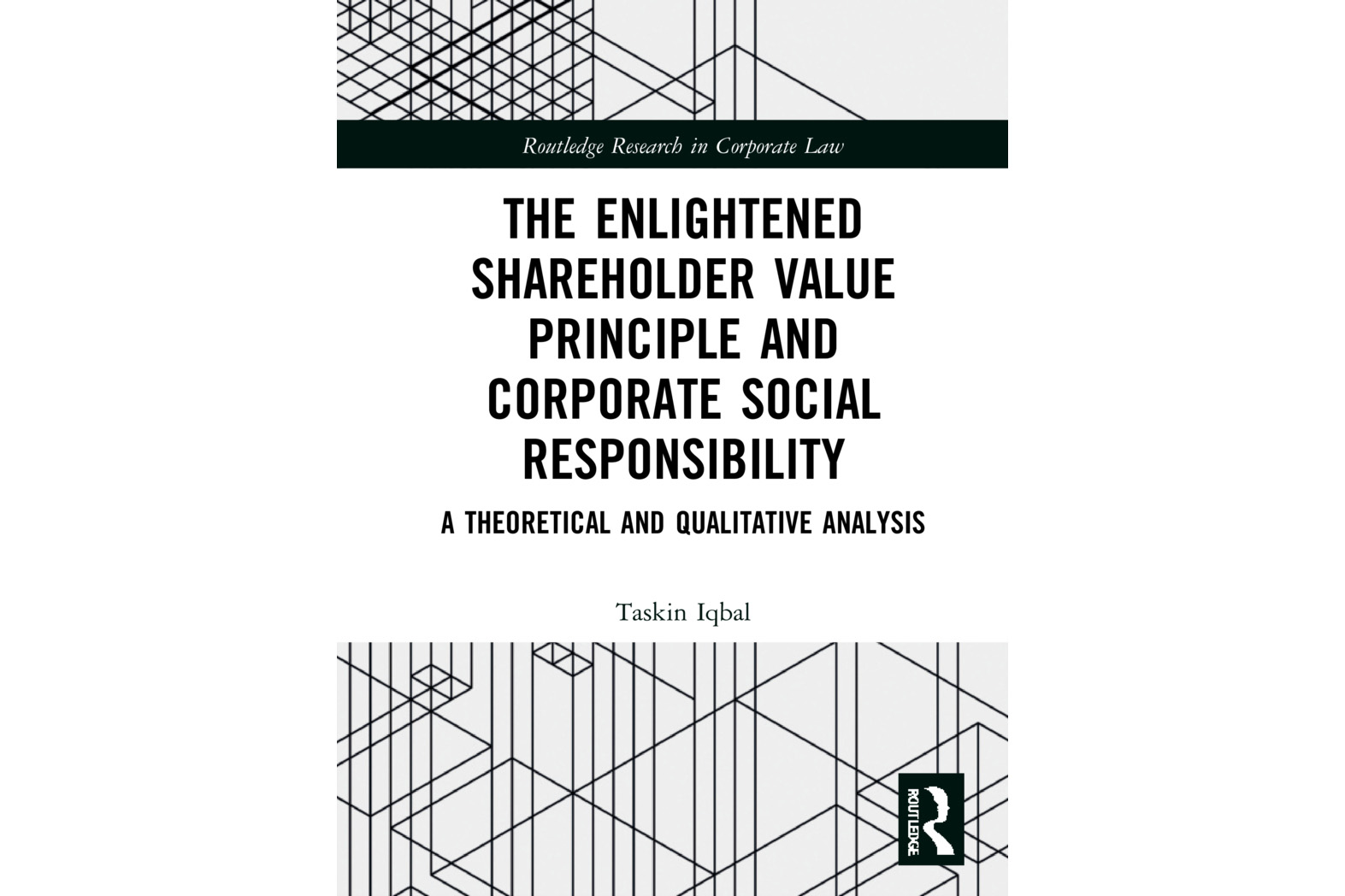In her new book, The City Law School’s Dr Taskin Iqbal analyses the impact of the concept of Enlightened Shareholder Value on Corporate Social Responsibility and explores the scope for reform.
By Mr John Stevenson (Senior Communications Officer), Published
Dr Taskin Iqbal has analysed two concepts in contemporary corporate life in her new book, The Enlightened Shareholder Value Principle and Corporate Social Responsibility: A theoretical and qualitative analysis (Routledge).
 Enlightened Shareholder Value (ESV) and Corporate Social Responsibility (CSR) are areas of increasing research interest. However, discussions on the ESV principle in relation to CSR are limited.
Enlightened Shareholder Value (ESV) and Corporate Social Responsibility (CSR) are areas of increasing research interest. However, discussions on the ESV principle in relation to CSR are limited.
Dr Iqbal is a Lecturer in The City Law School. She is the module leader for the Law relating to Public Companies module on the LLB and GELLB programs.
Her book provides a critical analysis of the impact of the concept of ESV - embedded in the UK Companies Act 2006 - on CSR, and explores the scope for reform. The two concepts promote similar outlooks because in both of them the idea of value is based on long-term sustainability, and the importance of considering stakeholder interests in achieving that goal is recognised.
Together with an analysis of existing empirical research, it presents the findings of an empirical study conducted to determine whether the concept of ESV is capable of promoting or assisting CSR.

The book also examines whether implementing an ESV approach has had any impact on the CSR practices of multinational corporations that originate in the UK and operate in developing nations; in order to assess whether the ESV principle links to CSR both its domestic and international impact need to be considered. This analysis was undertaken through the lens of a case study on the ready-made garment industry in Bangladesh, with some focus on the Rana Plaza factory disaster of 2013 - which resulted in the death of around 1,134 people and injuries to approximately 2,500 more. This study also assists in demonstrating the changes that need to be implemented to improve the current situation. Lastly, the book also addresses the need for reform in the area and provides possible suggestions for reform.
The Enlightened Shareholder Value Principle and Corporate Social Responsibility will be of great interest to students and scholars of corporate law, corporate governance and business studies in general as well as policymakers, NGOs and government departments in many countries around the world working in the fields of CSR, sustainability and global supply chains.
